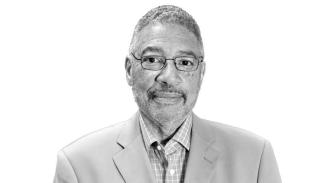
[OP-ED]: A New ‘TAP’ To Lower Philly Water Bills
Soaring water rates will mean drought for millions of Americans in four years without major change now.
The bone-chilling cold of the past few weeks automatically elevated staying warm to Priority #1.
Given the cold temperatures, most thoughts of water settled on making sure water pipes don’t freeze and of course that frozen water falling from the sky – snow.
However, for thousands across Philadelphia, thoughts of water centered on their bleak reality: having no water service for their residence.
Last year in Philadelphia, 27,776 water shutoffs for non-payment of water bills occurred. That 2017 figure was lower than the prior year when shutoffs for non-payment of bills totaled 36,825, according to figures from Philadelphia’s Water Department.
Yes, many of those delinquent bill shutoffs arose from derelict behaviors.
But for too many Philadelphians water shutoffs come from the chilling fact of simply not being able to afford to the cost for that life essential: water.
Philadelphia does have the highest poverty rate among America’s largest cities. And lack of adequate income coupled with rising utility rates produces repugnant realities like listed in a report released weeks ago by Center for America Progress.
Nearly 40 percent of Philadelphians cannot pay their monthly water/sewer bill that report stated. Further, a disproportionate number of black and Latino households in Philly have had their water shutoff at least once since 2012 “as a result of falling behind on their water payments.”
City Councilwoman Maria Quinones-Sanchez introduced a measure providing relief for lower income residents struggling to pay water bills that City Council approved unanimously in December 2015.
RELATED CONTENT
This innovative initiative, now known as TAP (Tiered Assistance Program), bases monthly bills on a portion of household income instead of water consumption. Persons that are income eligible or have an economic hardship can enroll in TAP without having delinquent water bills as required by the City’s other water bill assistance programs. On time payments for two years by TAP participants erases penalties from past bills.
TAP payments for eligible customers are far less than the average water bill of $70.87.
A commitment to help people afford housing that utility costs too often burden spurred Councilwoman Quinones-Sanchez to seek income based water bill payment, the Councilwoman’s Legislative Director and Legal Counsel Eric Bodzin said.
“Philadelphia is the first major city to pass income based water rates,” Bodzin said. “Our premise is that water is a human right.”
Bodzin said there are two pressing goals for TAP: increasing enrollments in the program and establishing provisions for erasing both past penalties and principle.
Currently TAP serves 4,600+ water customers, a small portion of the 60,000 customers City Hall estimates can qualify for this program.
Bodzin said an arrearage forgiveness component would make TAP “more impactful.” He said discussions for a forgiveness component are ongoing with Water Department and Water Revenue Bureau officials.
That Center for American Progress report praised TAP as a “bright light” and a model for other cities.
Rising water rates will push over one-third of U.S. households down the drain unable to afford running water by 2022 according to a report released last January.











LEAVE A COMMENT: